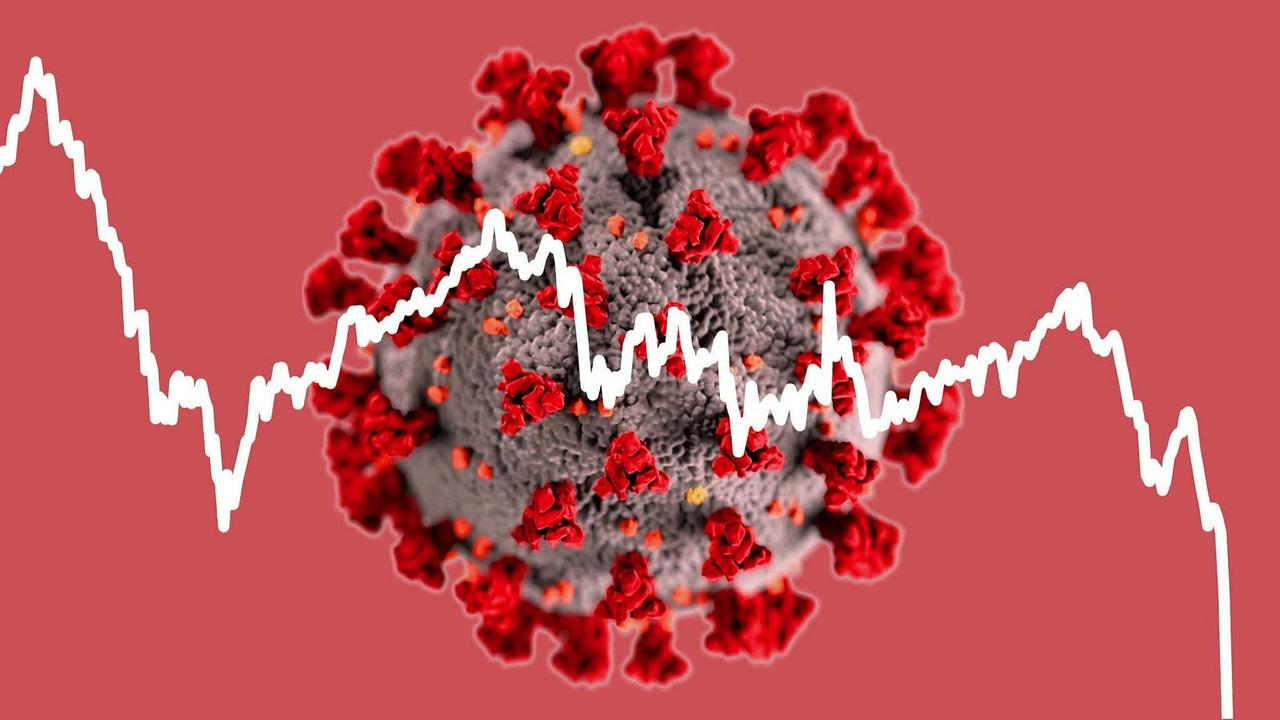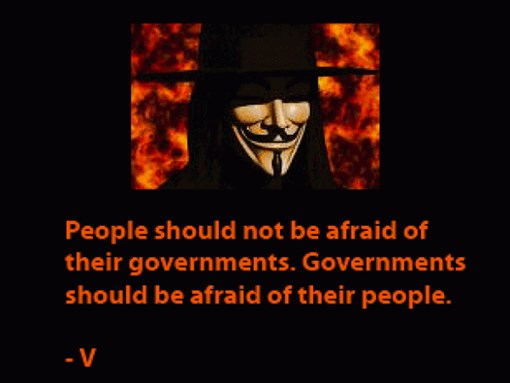
Posted on 06/15/2020 7:54:08 AM PDT by SeekAndFind
So what do we know with any sort of certainty about the claim that "the pandemic is over"? Very little.
Is the pandemic over in China, Europe, Japan and the U.S./Canada? Is the much-anticipated V-Shaped economic recovery already baked in, i.e. already gathering momentum? The consensus, as reflected by the stock market (soaring), the corporate media and governmental easings of restrictions seems to be "yes" to both questions.
But science is not a consensus-based activity, and so skeptics of consensus are looking to the sciences of epidemiology, virology, etc., and economics for evidence-based answers.
But as scientist and author Michael Crichton explains in this seminal paper he gave at Caltech in 2003, much of what is presented ("sold") as "hard science" is nothing but guesswork / conjecture and consensus, i.e. reaching a politically appealing conclusion and then conjuring up some junk science to support the conclusion. Aliens Cause Global Warming (by Michael Crichton) (via Michael M.)
The scientific method is pretty straightforward: propose a testable hypothesis and then design an experiment that acts on only one variable: one group in which no action is taken and another in which one action is taken. If the action taken has a recordable effect, then that data must be replicated by other labs performing the same experiment to confirm that there weren't errors in the protocol, equipment or data collection.
A variation of this protocol is a double-blind study, so-called double blind because neither the subjects/volunteers nor the researchers administering the experiment know which subjects received the active compound and which received a placebo.
In the case of natural systems such as the movements of planets, the method is to propose a model of Nature that can be reduced to mathematical predictions that can be confirmed by observations.
Unfortunately, it's virtually impossible to run these sorts of experiments on a pandemic or economy. It would be unethical to let the virus run rampant in one city and then control the pandemic with lockdowns in another, or treat one group of patients with a worthless placebo while giving others a potentially life-saving treatment.
Even if such an experiment of two cities could be run, the great number of variables would reduce the certainty of any conclusions.
For example, the exact same variation of the virus would have to be unleashed in both cities, both cities would have to have very similar weather, air quality, ethnic groups, demographic profiles and so on. If any of these weren't controlled, then they could skew the results, meaning any conclusion based on a single variable could be completely erroneous.
The same can be said of economics, which strictly speaking doesn't qualify as science because despite its heavy use of arcane equations, it is essentially impossible to reduce an economic setting down to only one variable and then stage a controlled double-blind study.
Much of the "science" being presented about the Covid-19 pandemic and the economy are models, and Crichton subjects the claims and protocols of models to a scathing analysis. It turns out that measuring or even estimating the variables in complex models is impossible, meaning the models are nothing more than guesswork, which is highly susceptible to biases such as confirmation bias: this are the results we want, and by golly, these "estimates" yield the results we wanted.
We've already seen models rejected as hopelessly defective, studies of treatments (pro and con) hopelessly compromised, and in multiple ways: sloppy math, sloppy data collection, data that can't be confirmed, and on and on.
As longtime readers will recall, I began covering the pandemic on January 24, 2020, the day after the Chinese government and WHO confirmed the Wuhan outbreak. I concluded the pandemic was consequential (based on the large-scale Chinese response and satellite imagery suggesting the number of deaths was an order of magnitude higher than what the Chinese officials claimed) and that it had already spread globally due to unrestricted air travel in and out of Wuhan and other cities in China.
I also concluded that the pandemic would have significant impacts on stock markets and economies globally. (Here is my list of pandemic-related posts.)
If we step back and review the data pertaining to the question, is the pandemic over in the developed-world nations?, we find a mass of data of questionable value, for the basic reason that there are too many uncontrolled variables in every data set, too much guesswork in the models, and essentially zero experiments controlled for the number of variables and bias that meet rigorous standards for protocols and data collection.
Another Achilles Heel of the pandemic data is the small sample size of many of the studies. Since everyone is in a rush to reach actionable conclusions, many groups are working with small sample sizes--often just a few dozen people. Careful observations of small sample sizes--for example, the study I posted on the occupants of a single bus in China carrying one asymptomatic passenger, and carefully identifying who else on the bus caught the virus--can be useful, because the bus was in effect a controlled experiment with relatively few variables.
But as those of you who study Phase I and Phase II drug trial data know, small sample sizes, even in double-blind studies, are notoriously unreliable. A new drug may seem to have a measurable effect on a significant percentage of a control group of 35 subjects, but subsequent larger trials reveal that the effect was actually statistical noise.
So what do we know with any sort of certainty about the claim that "the pandemic is over"? Very little. And there are still important open questions about the effects of the Covid-19 virus on younger, healthy people: though the virus kills relatively few people under the age of 50, some significant percentage of younger, healthy people suffer long-term organ damage, possibly as a result of the blood clotting the virus appears to trigger in roughly 3% of younger, healthy people who come down with severe cases.
These people didn't die, and so they drop off the statistical count everyone is following as the key statistic. But the after-effects of the disease are long-term and serious, and deserve careful study.
Let's say the death rate is 0.25%, but the number of cases that lead to long-term organ damage and disability is 2.5% -- ten times higher than the death rate. Are we focusing on the wrong data set? Do we know why the virus affects some younger, healthy people and not others? Are there treatments that minimize or reverse organ damage? These are still questions without science-based answers.
As for the study of economics and the V-shaped recovery: the Employment Report that triggered a 1,000 point rally in the Dow Jones Industrial Average is notoriously inaccurate, as it has all the core flaws described above:
1. An imprecise sample size
2. A defective model (the birth-death model of business formation)
3. No control for variables
4. Extreme vulnerability to bias: these reports often trumpet huge job increases which are subsequently "revised away" months later, completely ignored by the very stock markets that skyrocketed on the bogus headline number.
Do we have any real data on how much money at-risk groups (people over 60) will spend compared to their pre-pandemic consumption? No.
Do we have any reliable data that can be confirmed by independent researchers on the number of small businesses that are only opening to liquidate inventory before they close for good? No.
Every consequential question we have about the economy after restrictions ease cannot be answered with even the barest shred of scientifically reliable data. Everything the consensus and economists are claiming or projecting is nothing but guesswork.
In summary, we know very little about the pandemic's future course or the economic consequences. If our leadership and media were actually concerned with scientific accuracy, the paucity of confirmed science would be the first fact everyone stipulated. Instead, we're inundated with guesswork gussied up to mask the preferred narratives and biases of self-interested parties.
The cautious approach would be to maintain a skeptical circumspection about models, projections, conclusions, studies and narratives being promoted/"sold." We can start a skeptical inquiry by asking: cui bono, to whose benefit?
Second, we can study the two key variables identified by Nassim Taleb: mobility and the interconnections of networks. The greater the mobility of the human populace and the greater the number of connections between groups, the greater the number of pathways for the virus to spread.
"Herd immunity" is being presented as the solution, but do we know with any certainty that the presence of antibodies confers strong immunity for years to all variations of Covid-19? It seems way too early to claim immunity is certain and long-lasting.
Once the general public understands there are still significant uncertainties, the lack of certainty may have economic consequences that will be difficult to measure or predict.
The other point is that now that the time for authoritarian lockdowns has passed, everyone needs reliable information to make their own assessment of risk as part of deciding what activities they will do or not do to further their own interests.
Here is my global projection from February 2, 10 days after the WHO officially confirmed the Wuhan outbreak. Four-and-a-half-months later, this projection is still playing out.
* * *

I'm interested in this V shaped recovery of our basic principles.
In summary, we know very little about the pandemic's future course or the economic consequences. If our leadership and media were actually concerned with scientific accuracy, the paucity of confirmed science would be the first fact everyone stipulated. Instead, we're inundated with guesswork gussied up to mask the preferred narratives and biases of self-interested parties.
If he'd put this at the beginning, I would have saved five minutes of my life.
The market was doing great until the fed talked it down and MSM started up the virus surge BS.
If we are slated for a second wave of virus infections, shouldn’t China by now be reporting an uptick in cases? What is it, 4 months that they’re ahead of us?
Are they?
Exactly MSM pivoted away from COVID deaths because they are down and went to cases which are up due to increased testing
China report? That's a good one.
If I were China I might think it advantageous to “keep the scare on”in the West. So maybe they would raise the red flag.
Of course their probably worried about their economy, but if everyone else’s is a shambles, it’s hardly their fault. There may be a few uprisings but they know how to take care of that.
I’m just speculating here. You’re probably right. I was thinking that US intelligence could find out, but then would they report it?
Disclaimer: Opinions posted on Free Republic are those of the individual posters and do not necessarily represent the opinion of Free Republic or its management. All materials posted herein are protected by copyright law and the exemption for fair use of copyrighted works.